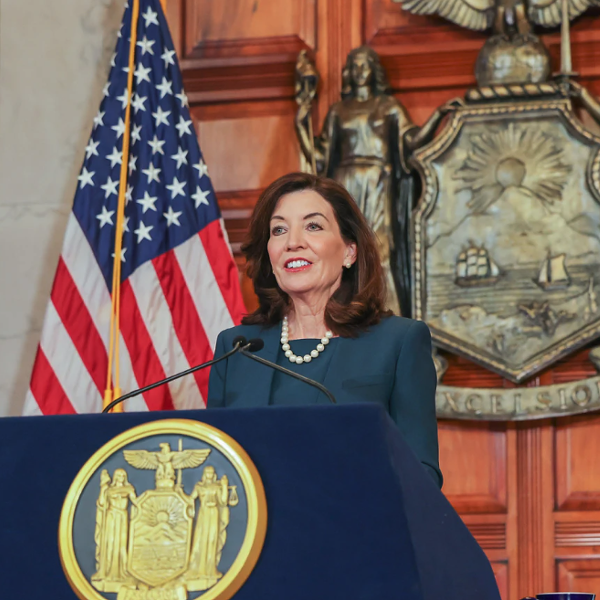Of the many things that belong in our communities, volatile gas pipelines are not among them. Unfortunately, coexisting with these archaic and dangerous pipelines is the unfortunate reality for many New York residents.
Consider the Algonquin Incremental Market (AIM) gas pipeline as an illustrative example. It carries fracked gas from Pennsylvania to New England, and is located in northern Westchester, a short distance from housing and a mere 105 feet from key safety equipment at the Indian Point nuclear power plant. To put things into perspective, in most other states, laws require pipelines to be at least 1,000 feet from schools; however, in New York, an elementary school in Buchanan is located just 400 feet from this dangerous pipeline. An explosion of the AIM pipeline near Indian Point could lead to a nuclear disaster that would threaten the lives of over 20 million people living in the tri-state area. Even if Indian Point shut its doors, an explosion igniting the spent fuel would be disastrous. Exacerbating an already tense situation is the decommissioning of Indian Point, which drastically raises the risk of a nuclear accident. Spectra/Enbridge obtained a permit allowing it to build the new AIM expansion only 105 feet from critical safety infrastructure.
New York State’s gas infrastructure requires disassembly. The AIM pipeline exemplifies the absurdity and irresponsibility of the status quo. The urgency of this issue becomes even more apparent in the context of the Climate Leadership and Community Protection Act (CLCPA).
However, no legislation has been passed in two years to put us on the path to achieve these objectives. This begs the question: what organization is charged with the task of making sure our state meets CLCPA guidelines?
The Public Service Commission (PSC) oversees utilities in the state. It is responsible for generating a roadmap dictating how exactly we will meet the CLCPA’s goals. This plan is called the “Gas Planning Proceeding,” the product of which will be a white paper by PSC staff detailing how the commission will improve its processes to align with the CLCPA.
The white paper was supposed to be released by August of 2020, but was delayed until February of 2021. To make matters worse, the draft did not incorporate the input of the Renewable Heat Now campaign, nor the statewide coalition of 190 elected officials and 130 organizations that filed comments within the proceeding, outlining specific points that must be included so that communities and the state as a whole can move away from fracked gas in a timely and equitable way. This is essential for ensuring that all households have access to affordable renewable heat and energy.
These individuals and organizations made thoughtful and well-researched comments on the proposal, but what is delaying their incorporation? Investor-owned utilities rely on short-term profit booms from gas infrastructure to reward and attract stockholders. To those ends, some pipelines, such as the AIM pipeline, are involved in gas exportation to foreign countries, but because a fraction of it is being used for domestic energy, the funds for these construction projects come from the taxpayer’s pocket. The irony is clear—New Yorkers are paying for pollution so that private companies may profit.
While the PSC is very much at fault for the current issues with New York’s utilities, former Governor Andrew Cuomo reportedly crowded the PSC with allies, violating the traditional separation of powers. Moreover, the PSC continually chooses to back privately owned utilities instead of the public good. “The public process is a charade, it’s a play act,” former Earthjustice attorney Chris Amato said in 2017. Evidently, Cuomo’s actions have put New York citizens in a position where they need to fight for the return of a fair public process and for a say in matters related to their utilities. Let’s make sure it doesn’t happen again.
Join the fight by contacting the Governor and using your voice as a constituent to ask that the PSC revise its white paper. Visit renewableheatnow.org to learn more.
The River is a nonpartisan news organization, and the opinions of columnists and editorial writers do not necessarily reflect the opinions of the newsroom.

















